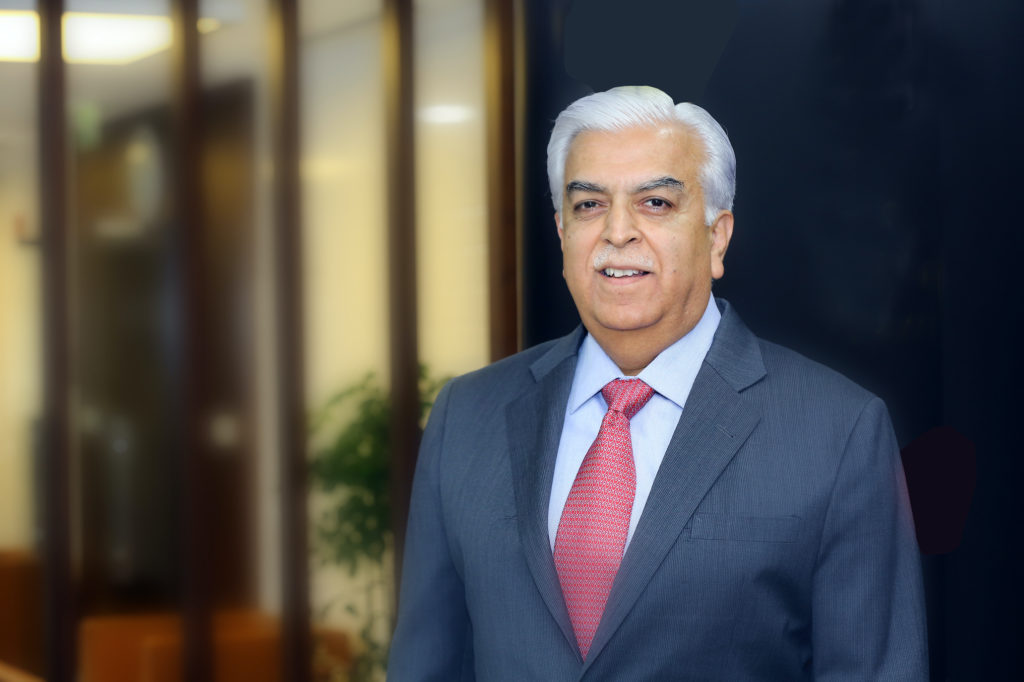
Dear Friends, Change-makers, Influencers and leaders of the future,
As many of you, across the world, have passed out, or are in the process of graduating from various institutes of repute, we, your seniors, are fully aware of your predicament and thoughts raging through your minds. Even otherwise, a few decades ago, when the world entered into a Ruptured phase (RAPID, UNCERTAIN, PARADOXICAL ANDTANGLED), things were not so simple and easy for all of us. Sadly, the Covid-19factor has multiplied this by several X.
There are many of us out there who fully understand your worries, apprehensions, doubts, and stress. We, your seniors, have all been through similar phases at several stages of our lives, though nothing quite like this Covid-19 phase. For those who don’t own up to this truth, and keep harping and writing about a linear, upward-growth chart, we are doing you and ourselves a disservice.
As your parents, bosses, mentors, well-wishers – do allow us to leave you with some thoughts, some perspectives which will help you realize that you are indeed a much better, more rational, more well-meaning generation who needs quality time and attention from us, your seniors.
The reason many of you struggle is not because it’s a new generation, as is simplistically explained away by many of our generation.
Perspective 1 – Its mainly cultural.
Many of us Seniors need to take the responsibility for under-emphasizing, and not getting you ready for the cultural transition that takes place between the school or college, the world of degree-based education, and the professional world.
Our entire system is built in silos in such a way that, for the entire school and college life, we have been ingrained with this belief system that as long as we work hard, study hard, pass with flying colors, we will get promoted to the next class, or finish our graduation. We have a syllabus, grades are standardized, and it becomes easy to understand our personal performance levels relative to others, or relative to ourselves.
This feedback paradigm shifts entirely once we enter the professional world. The feedback we receive at work is often less consistent and less easily understandable than in college. Depending on the professional capabilities of our managers, leaders and our organizations, we might receive very clear, detailed and consistent feedback on assignments; or we might receive feedback in a difficult-to-decipher manner, or many times not get any feedback at all. Most of the times, the feedback we receive is often more qualitative than quantitative, which is likely to be confusing to many of you who are entering this world, except in cases where you are likely to work for really good, world class organizations.
As a result of these cultural differences, once you step in to the world of work, you may experience a feedback vacuum in the professional world — wondering how to improve, if you need to improve, and how you can develop the skills necessary to improve in your career. No need to be overly concerned. Do internalize in your psyche that this is absolutely normal, and a global phenomenon.
As fresh pass outs, once you get that job, you will need to prepare yourselves on how to receive positive as well as negative feedback in a poised, professional manner.
Perspective 2 – Learning and internalizing soft skills.
A productive and healthy work environment depends on soft skills. Soft skills are essentially character traits, and are sometimes referred to as transferable skills, whereas hard skills are easier to define and evaluate, for example, data analysis, supply chain management, financial management etc.
The ability to demonstrate a good work ethic, compassion, understanding diversity, emotional intelligence, honesty of purpose, as well as being able to value and appreciate differences are just some examples of soft skills which employers actively seek in potential hires. These softer skills and attributes are critical for talent to be naturally inclined to grow themselves and the business.
They are also critical in helping to create an environment of inclusivity and empathy, in which we expect people to work together as one team; supporting each other in doing meaningful work, despite personal differences.
So, the teaching of employability skills is hugely beneficial for students and future generations. Job advertisements make it very clear what they want in an ideal candidate. But what about soft skills? What are employers expecting there?
The development of soft skills is essential in equipping you for the future of work and preparing you for your careers.
Perspective 3 – “employability”.
Due to the rapidly disruptive nature of industry trends, there will be a fewer number of newer generation pass-outs who will be able to be in one good organization for long durations of time.
Therefore, two important areas of feedback will help majorly. The first is that, if your market value is hundred, and you are willing to work at anywhere between 80-90, your chances of being employed for a longer time are higher. The ones who are consistently looking for getting their market value of 100 or more are the ones who are likely to go first in a downturn or slow economic environment.
The second is that, the faster you learn entrepreneurship skills, the more are the chances that you will continue to be fruitfully occupied. If our generation, over our working timespan, has encountered 3-4 major downturns, it is likely that, from now onwards, the business upheavals will be more disruptive and more frequent.
Entrepreneurial, risk-taking capabilities can be imbibed much faster at a younger age. Hence most of you are on the right side of age. Look for opportunities to do something on your own, once you have gained some experience. Even thinking as an entrepreneur in the jobs you do will keep you more employable.
Perspective 4 – Relationships
In school, college, and the world of education, we all build relationships with people we want to — and most of them are with people around the same age. These relationships evolve naturally. And there’s typically very little pressure to keep up relationships we don’t enjoy.
However, once you will enter the professional world of work, you find yourselves enmeshed in a very different experience of relationship building. It’s now more strategic. Relationship building in a professional environment is about trying to develop friendships, for sure, but it’s also about building a robust network of colleagues who can help you succeed at your job and advance in your career. This means interacting regularly with people of different ages, backgrounds and interests. It also means developing a connection with your senior — a new authority figure who not only tells someone what to do, but also has a lot of power over future career development. And if he or she is selfish about his or her own personal interests, can cut you off in a moment.
You will need to learn, and to find ways to manage difficult relationships in a productive and professional manner. Even if some of them may not be friends.
Perspective 5 – Holding yourself accountable
In a professional environment, there is much more at stake, and mistakes can have severe consequences. You are not only accountable to yourself, but also to your team, to your colleagues, to your boss, to your division, and to your organization. Unlike in a school or college, where you can make up or ask for extra credits, if you fail in a job, damage a client relationship, mismanage an interaction with a supplier, you may not be able to, or may not be allowed to make it up. Yet, mistakes will happen despite your best efforts and intentions. In such cases, as mature individuals, you will have to learn to accept even these mistakes as learning opportunities – the pressure on you all will be of a different type, but you will surely be able to grow through such experiences as well.
Perspective 6 – Mentors
It will greatly benefit all of you if you are lucky to get a good mentor. You will find a very large number of very experienced people out there in the world. But do remember that more experienced seniors may not necessarily make better mentors. Mentorship, like many other inherent qualities, is also visible in some seniors and peers, not all. As a thumb rule, the ones who are internally secure end up being better mentors. You will need to exercise a great deal of your own intuition and intelligence to find mentors who have experience of both sides of the transition. Mentors who remember what the challenges were like when they were freshers, and who have addressed and overcome them.
And yet, for the many who may not be able to latch on to good mentors, you will surely find ways to learn the good, and also to unlearn the not so good traits of your seniors.
Perspective 7 – Punctuality matters more than attendance
Respecting your time and also the other person’s time is a tremendous quality to inculcate. Over our lifetime, we all make some money, and at times lose some as well. Money lost could be regained. But time lost, or wasted cannot be made up. The discipline of time management is a huge gift that each of us can give to ourselves and to those around us. It just conveys that we respect our time as well as the time of those around us. Hence coming to meetings on time, closing meetings on time, meeting task deadlines, keeping others informed well in time of delays is a super trait to possess.
Perspective 8 – Empathy
It is a natural human trait to attribute all of one’s success to one’s capabilities.
No matter what position or level you are at in life, you will always have several who are better than you, those who you wish to emulate. And you will also have many more whose efforts, intelligence, capabilities may be better than yours, but have not landed up with the same opportunities. As seniors, our request to you is to inculcate the quality of “empathy” very early in life. Spend some portion of your time, energy, money in uplifting those around you who may need help of any kind. The amount invested is not important. The spirit is. Empathy is that quality which, when you look into the eyes of the less fortunate, you realize that you could be one of them, the differentiating factor being just sheer luck. The same luck which could turn the other way for you as well.
Perspective 9 – Learn a language
You are truly global citizens, since the world has turned into a global village. Do not be disappointed with current trends. They will not last forever. And in order to create a more inclusive global force, it would help many of you if you were to pick up an international language. Reading, writing as well as speaking. Chinese, Hindi, Japanese, Russian, Spanish any of these will hugely improve your armour. Some of these are also languages of growth economies of the present and the future.
To conclude, as we have watched you youngsters handle the pressures of covid-19,the problems and difficulties of online classes, the long spells of not being socially in touch with friends, many of us realize that the manner in which most of you have handled your life and this situation is far better than some of us would have done as students and youngsters. You have indeed come out with flying colors, and someone needs to mention this to you all, and recognize your huge effort in just maintaining your sanity. Do not worry too much. To many of us, you are clearly visible as a generation who are far more tolerant, far more inclusive in your approach towards life and relationships.
If there are shortcomings, we, as your seniors, do need to take a fair share of the flak and responsibility, and at least from now, introspect on whether we need to find a better balance in our lives to leave you with a better legacy. Leaving just a legacy of wealth for you all may not be the best approach. We keep instilling in you the teachings of various religious scriptures. But we realize that, for your generation, how we follow the same, how we walk the talk matters more than what we keep telling you.
You guys are doing well. The external, extraneous environment may be in our circle of concern, but outside our collective circle of influence. We know that as you continue to focus on your circle of influence, many of you, over time, will be able to grow this circle of influence bigger and bigger, and will find better ways to deal with the world while searching for and attaining your respective holistic successes.
Good luck to you all. Do realize that, in many ways, our generation is also learning a lot from you, our silent teachers.












